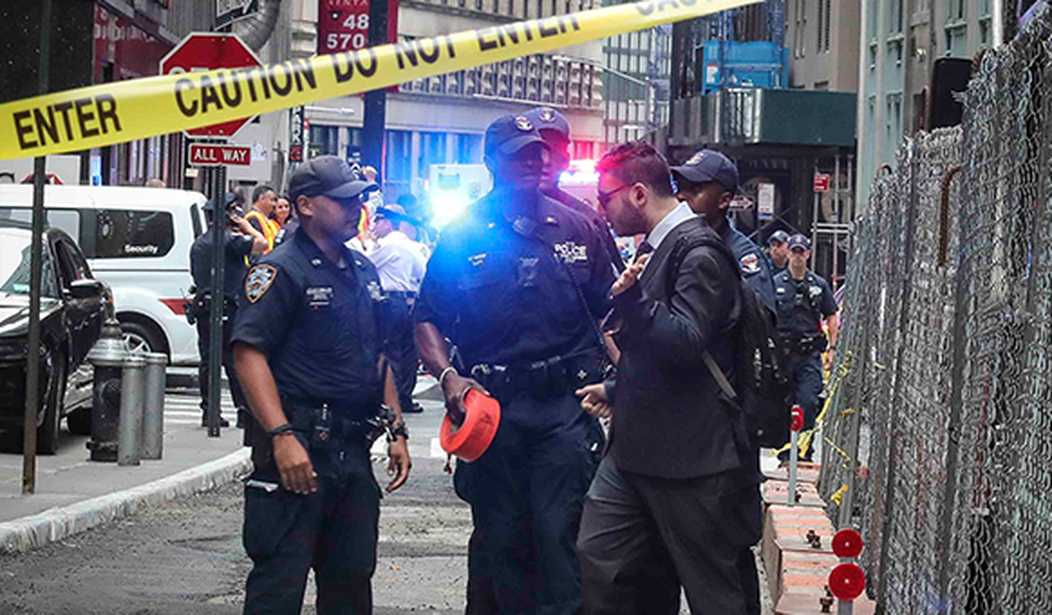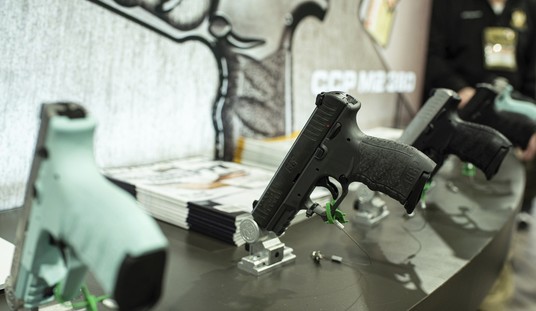Violence is one of those things that has its place, but usually as a response to someone else being violent. Some dream of a day when man evolves beyond the need for it, but I’ve always thought that was ridiculous. Sure, you can hope for such a thing, but all it takes is one person who remembers what violence is to upset that Utopian apple cart.
Because it’s such a part of us as a species, it’s imperative that good, decent people have the means to meet violence with violence. Otherwise, we stop becoming people and become statistics.
At its core, that’s what NYSRPA vs. Bruen is about. It’s about making sure those law-abiding folks have the means to defend themselves should the need arise outside of their home.
But for the Bloomberg editorial board, it’s something different.
A recent hearing left the impression that the Supreme Court’s conservative majority is inclined to strike down a gun law that’s been on the books for more than 100 years. That would be a grievous error — and would make cities across the nation more dangerous.
The law, passed by New York state at the turn of the last century, says that those who wish to carry a firearm in public must show “proper cause,” or a demonstrated need for personal protection. A lawsuit brought by a state affiliate of the National Rifle Association claims that such a restriction infringes on the Second Amendment’s right to bear arms.
That’s because it does.
More than a decade ago, in District of Columbia v. Heller, the late conservative Justice Antonin Scalia emphasized that there are legitimate public-safety reasons for governments to adopt firearm regulations, including those that govern the public square. “Like most rights,” he wrote for the court, the Second Amendment “is not unlimited.” Indeed, the historic record of gun regulation, including centuries of common law and English and American jurisprudence, allows for regulating firearms in public spaces.
He did. This case is about establishing precisely where those limits lie. For example, requiring a permit may be considered an acceptable limit, but barring people from getting a permit for subjective reasons–such as requiring a “good” reason to get one–may not. Or they may decide permits aren’t acceptable at all.
But just because a right isn’t unlimited doesn’t mean any and all restrictions are acceptable, either.
Granted, I always disagreed with this part of Heller, but I’ve long believed Scalia had to include it to get a fifth vote.
The prospect of armed citizens walking down New York City’s crowded sidewalks, and riding its subways and buses, is a disaster waiting to happen. People will feel less safe — and they will be less safe, not only because criminals will be emboldened to carry guns, but because those who legally possess firearms may pull them out during confrontations that might otherwise be settled with words.
**looks at New York City’s violent crime rate**
Uh…criminals are already emboldened to carry guns, you pompous twits! They’ve been carrying them for years.
Besides, it’s not like the Court is really likely to do away with permit requirements anyway. Most of us, myself included, figure the best we’ll see is “shall issue” become the law. That means people will still be subject to background checks before getting a permit. It also means those carrying without a permit will still be committing a crime.
You know, like the criminals the editorial board is freaking out about.
It was especially troubling to hear Justice Samuel Alito suggest that concealed carry should be allowed because of crime on the subways. Any New Yorker who lived through the Bernie Goetz saga knows the danger such sentiment is courting. But it isn’t just victims of muggings who might shoot and kill.
Did they forget that Goetz defended himself and only shot those who he claimed were trying to rob him? Let’s remember that the only charge Goetz was convicted of was a weapons charge.
The paragraph continues:
When witnessing a crime, citizens carrying guns may be tempted to use them, firing off rounds and endangering everyone around them. Police officers, who regularly practice shooting, often miss their targets. Civilians attempting to be Wyatt Earp are far more likely to kill innocents.
Show your work.
Concealed carry has been a thing for decades and this simply isn’t a big thing. That’s mostly because those with permits understand they’re responsible for every round that comes out of their weapon.
Oh, and they practice shooting regularly as well.
The cost of gun violence is already much too high: Each year, firearms are used in some 13,000 murders and 23,000 suicides. They seriously injure many thousands more.
And statistically, those with carry permits are the least likely to carry out any of those crimes than any other group. That includes police officers.
If the Supreme Court strikes down this law, expect that tally to rise — because other state laws may fall too. New York is one of eight “may-issue” states — California is another — in which a state or local authority has discretion over whether to issue a concealed-carry gun permit after an applicant has passed basic age and background assessments. Proof of “good” or “proper” cause is one of the strongest requirements. Note that New York and California contain nearly 20% of the nation’s population and its two largest cities. Even states that are considered “shall-issue” often display a modicum of discretion.
Again, those with permits are among the most law-abiding demographic you’re going to find. While they might kill people, it’ll be criminals who are threatening their lives or the life of another.
All this fearmongering is predicated on the idea that anyone with a gun represents some kind of threat, which simply isn’t true.
Some conservative justices seemed to concede that a municipality has the right to specify areas where guns are prohibited — in heavy crowds, for example. But crowds in New York are a 24/7 phenomenon and not restricted to tourist sites like Times Square. That’s part of what makes the city special — and safer than most other big cities. There is safety in crowds, but there will be less of it if the court strikes down New York’s law.
The conservative justices should let precedent stand — and let cities and states continue protecting their residents and visitors with reasonable gun regulations that respect rights and protect lives.
In other words, the board doesn’t believe your rights exist inside New York City because it’s “special.”
No. That’s not how rights work.
And yes, you may be safe in crowds, but while crowds may exist 24/7 in New York, they don’t exist everywhere 24/7. Even the Big Apple has its dark alleys and shadowy corners. It’s got its deserted streets in shady parts of town, too.
Because that exists, there is nothing all that special about New York City.
But there is something special about “may issue” that Bloomberg glossed over, and that’s how it invites graft.
Over the years, we’ve seen several scandals where people wanting to get a carry permit were able to do so by exchanging money or goods with issuing authorities. People were able to bribe their way into permits, something that simply can’t happen in “shall issue” states.
The only arguments in support of New York’s current scheme are fear, distrust, and outright fabrication of the facts. That’s all we’re seeing in this piece from Bloomberg and it’s all we’re likely to see from anyone else.







Join the conversation as a VIP Member